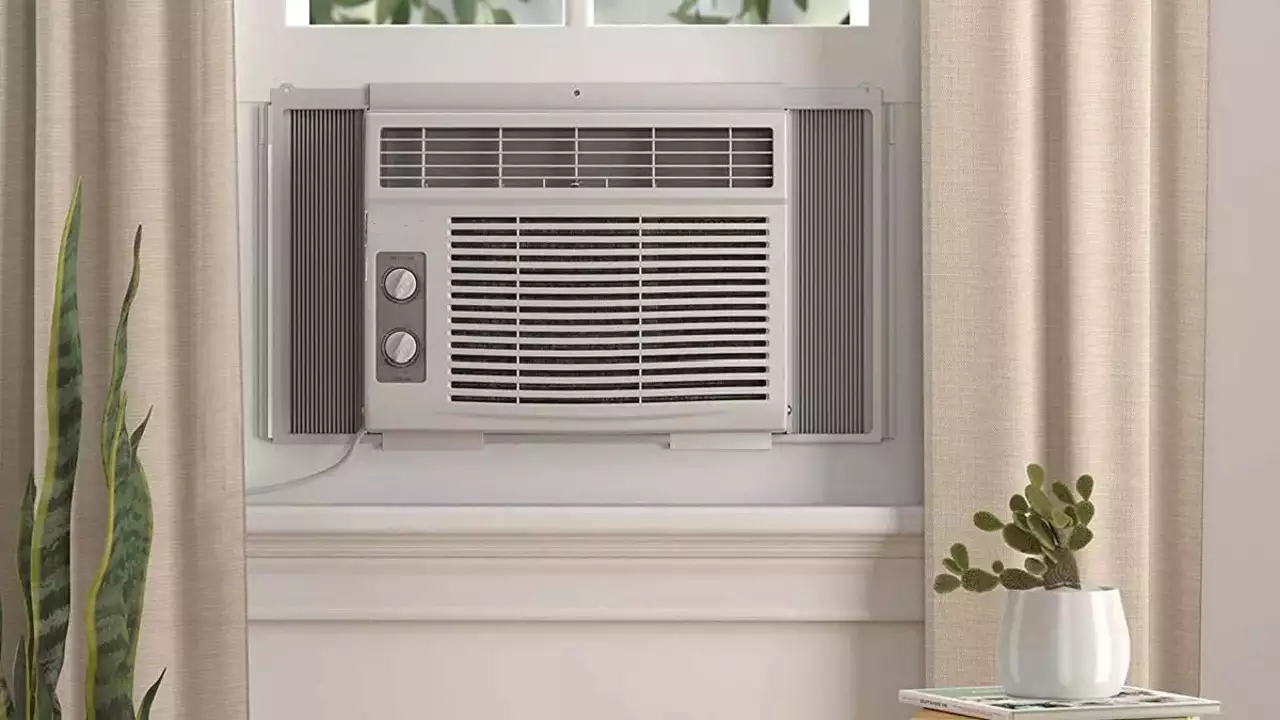
The want to be cool and cosy indoors grows with the weather. However, if choosing the ideal air conditioner for your home is making you feel heated and stressed, take a big breath of cool, fresh air and unwind. You’re covered with all the great information you need to make the best decision in this thorough guide. We’ll go over the many kinds of AC units and the important considerations when selecting the appropriate size for your space. Find out just how often you should give your air conditioner maintenance to maintain optimal performance. Plus, when your AC acts up, discover how to solve common issues and beat the heat.
You may find the answers to commonly asked questions on installation, maintenance, energy use, and more. These may help you maximise efficiency, prolong the life of your unit, or revitalise an old system. Don’t worry; following our sensible, no-nonsense guidance will help you maintain your composure throughout the sweltering summer months. Get the dirt on air conditioning from A to Zzz by reading on.
Air Conditioner FAQs: Your Top Questions Answered on Window AC, Renting, and More
1. What Types of Air Conditioners Are There?
- Window Units: Installed in a window, suitable for cooling single rooms.
- Portable Units: Stand-alone units that can be moved from room to room.
- Split-System Air Conditioners: Consist of an outdoor compressor and an indoor unit, ideal for cooling individual rooms.
- Central Air Conditioning: Cools an entire home through a system of ducts and vents.
- Ductless Mini-Split Systems: Similar to split systems but without the ductwork, suitable for individual rooms or open spaces.
2. How Do I Choose the Right Size Air Conditioner for My Space?
To find an AC unit tailored to your needs, measure your room’s square footage and factor in variables like window placement and insulation. The AC’s size is indicated in British Thermal Units or BTUs—the higher the BTU rating, the larger the space it can cool. For the average room, look for a unit with about 20 BTUs per square foot. Once you’ve measured your room, consider how much sun it gets and whether the walls or attic are insulated. More exposed or uninsulated rooms may require additional BTUs. When in doubt, choose a slightly larger unit as an underpowered AC won’t effectively cool your space.
3. How Often Should I Service My Air Conditioner?
Servicing your AC once a year, preferably before those hot summer months roll around, is ideal. Regular tune-ups and maintenance keep your unit running at peak performance so you stay comfortable all season long.
4. How Can I Improve My Air Conditioner’s Efficiency?
- Clean or Replace Filters: Dirty filters obstruct airflow and reduce efficiency. Clean or replace them every 1-2 months.
- Seal Leaks: Ensure windows and doors are properly sealed to prevent cool air from escaping.
- Use a Programmable Thermostat: Set it to higher temperatures when you’re not home and lower when you return.
- Maintain the Unit: Regularly clean the coils and check refrigerant levels.
5. What Are Common Air Conditioner Problems and How to Fix Them?
If your AC unit isn’t blowing cool air, it could indicate an issue with the filter, refrigerant level, or compressor. Check the filter first—if it’s clogged, replace it. If that doesn’t fix it, have an HVAC tech check the refrigerant and compressor. Strange noises like grinding or squealing often mean there’s a loose part or debris stuck in the unit. Shut it off and call for service.
6. Can Air Conditioners Help with Air Quality?
Yes, air conditioners can help improve indoor air quality. Modern units often come with built-in air filters that remove airborne contaminants like dust, pollen, mold, and pet dander. Upgrading to a unit with a HEPA filter provides even better filtration and can significantly reduce allergens and irritants in the air. Some air conditioners also offer additional air purifying technologies like ionizers, UV lights, and bipolar ionization that help neutralize bacteria, viruses, and volatile organic compounds.
By controlling temperature and humidity, air conditioners also inhibit the growth of mold, mildew, and bacteria that can build up in warm, damp environments. Keeping your home at a comfortable temperature and humidity level with an efficient air conditioner is one of the best ways to ensure good indoor air quality and a healthy breathing environment.
7. How Long Do Air Conditioners Typically Last?
The lifespan of an air conditioner varies depending on the type and how well you maintain it. On average, a window unit will last 8-10 years, while a portable unit 5-10 years. Split-system and central AC units tend to last 15-20 years. With proper servicing and care, your AC can keep working efficiently for years to come.
8. Are There Energy-Efficient Air Conditioners?
Yes, many ENERGY STAR certified units are available. These air conditioners are tested to meet strict efficiency requirements set by the EPA, using at least 15% less energy than standard units. The less energy used, the lower the utility bills. Look for the ENERGY STAR label when buying a new air conditioner to ensure maximum efficiency.
9. How Do I Install a Window Air Conditioner?
Installing a window air conditioner is a straightforward process. First, measure your window to ensure the unit will fit properly. Clean the window sill and frame and remove any obstacles like screens or seals. Follow the instructions to install the mounting brackets, then lift the air conditioner into place, securing it to the brackets. Use weatherstripping or insulation to seal any gaps around the unit for maximum efficiency.
10. How Do I Clean and Maintain My Air Conditioner?
To keep your AC running efficiently, it’s important to perform regular maintenance. Clean or replace the filter once a month or so—a dirty filter reduces airflow and efficiency. Gently clean the condenser coils and evaporator fins with a soft brush to remove built-up dirt; check that none of the fins are bent or damaged. Ensure the drain line is clear so condensation can flow freely; clogs can lead to water leakage into your home. Lubricate any moving parts like fan motors to prevent squealing. And consider having a technician service your unit annually before the first hot day of summer. Keeping your AC well-maintained helps it run better and last longer.
11. Who install an Air Conditioner?
If installing an air conditioner seems daunting, don’t fret – there are professionals who can handle it for you. Company technicians from which you have brought the Air Conditioner will do the job for free. Just give them a call and sit back and relax. Companies like Cityfurnish which offer Air Conditioner on rent also offer free delivery, installation and pick-up services once the scorching summer has passed. They can also help determine the right size and type of AC for your needs.
12. Are air Conditioner covers necessary?
An AC cover can protect your unit when it’s not in use, but for most homeowners, covers are not essential. If your AC is exposed to harsh weather or vulnerable to damage, a cover is a good idea. But for normal conditions, as long as you properly maintain your AC, a cover is optional.
13. Can Air Conditioner run on Inverter or Solar?
Yes, some air conditioners can run on inverter or solar power. Inverter air conditioners are powered by an inverter that allows the compressor to operate at different speeds based on the temperature, increasing energy efficiency. Solar-powered air conditioners use solar panels to generate power for the unit.
14. Which Air Conditioner brand is best in India?
The top AC brands in India are Voltas, LG, Blue Star, Hitachi, Daikin, Whirlpool, etc. Voltas and Blue Star are Indian brands that offer budget-friendly and efficient ACs. LG and Hitachi are reputed international brands with premium models. Daikin is a Japanese brand known for its innovative and energy-efficient inverter AC technology.
Take Away
So there you have it, folks – the complete lowdown on air conditioners. We covered everything from the different types available to proper sizing, maintenance, troubleshooting, efficiency, and more. As the hot summer months approach, an AC unit can be a lifesaver and help you keep your cool when temperatures rise. Just be sure to do your homework and choose the right model and capacity for your space. And don’t neglect regular maintenance – it’s cheap insurance to keep your system running smoothly for many years. Installation isn’t too tricky if you’re handy. If not, hire a pro. But either way, you’ll be chilling in comfort in no time. Stay cool out there!

